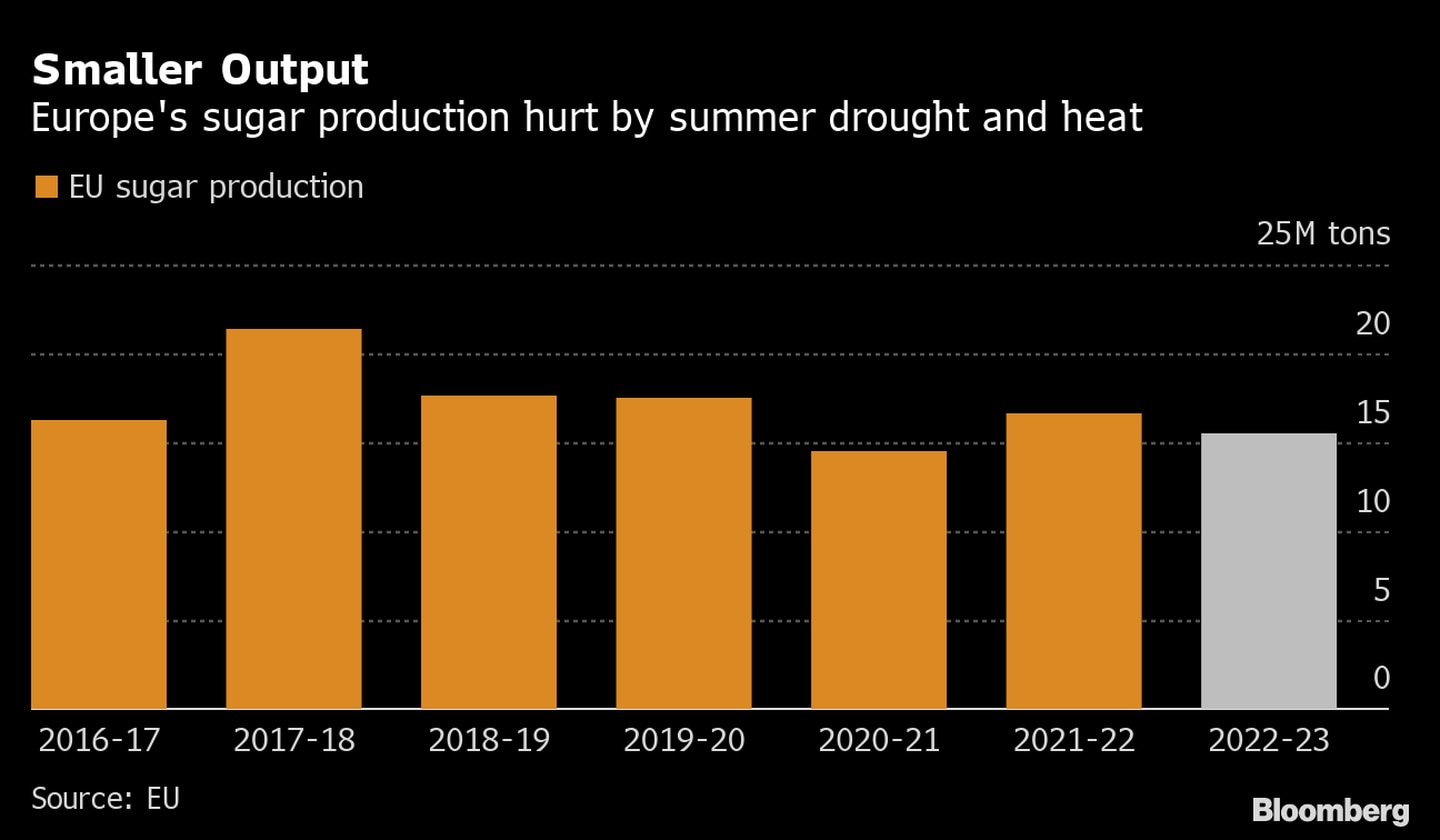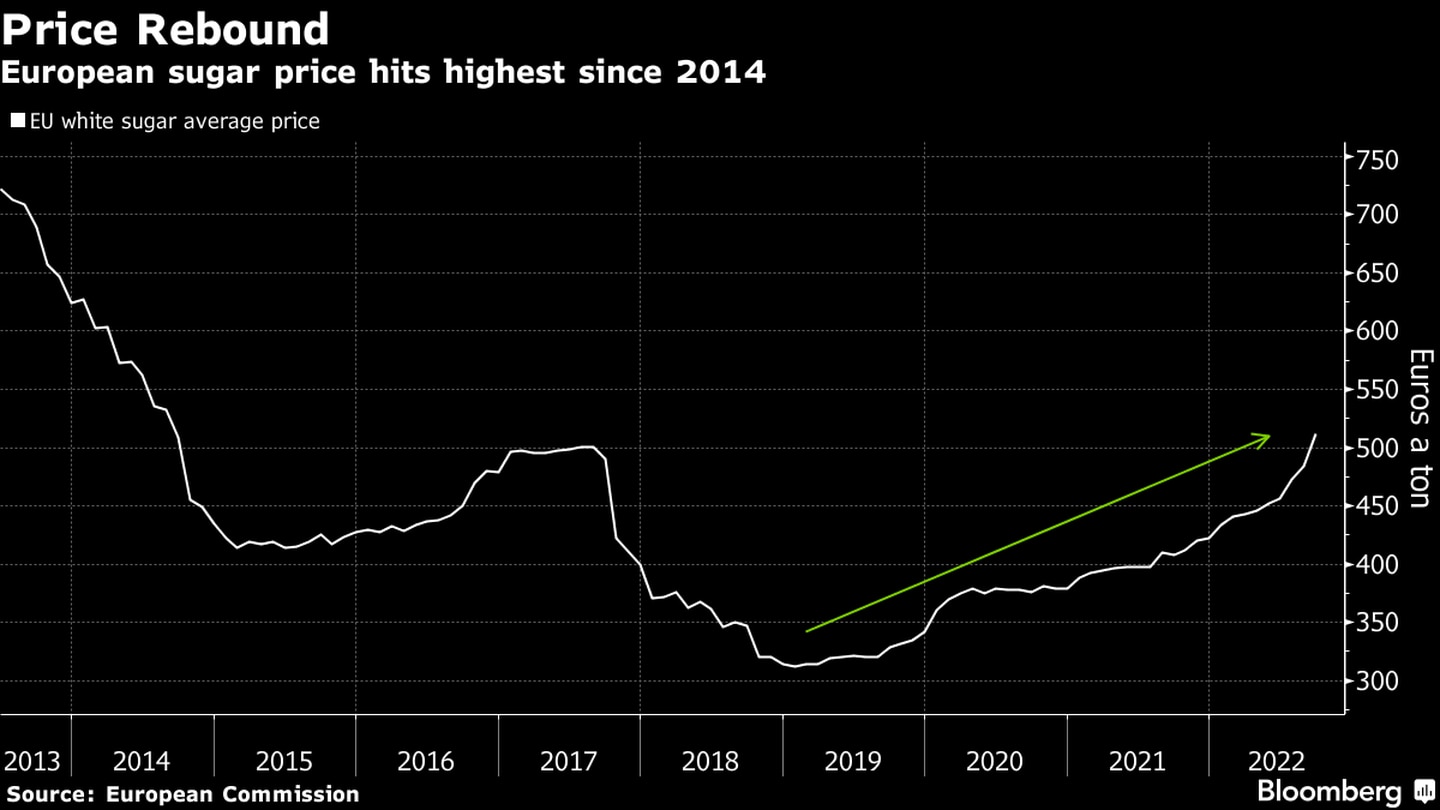Europe is facing a sugar shortage and food industries are paying dearly to secure supplies after a heat wave crippled local harvests this year.
Manufacturers of sweets, cakes and soft drinks are paying much more than usual to obtain sugar in the short term, and the risk of some going out of business has increased, according to CIUS, the association representing European sugar buyers. For consumers, it is a threat of further inflationary pressure.
The association wants the European Union to temporarily suspend import tariffs to encourage shipments of refined sugar.

To alleviate the crisis, Europe could buy from countries in Africa and the Caribbean, whose shipments have fallen in recent years, but which may now be more attractive at current prices, according to Josh Gartland, deputy director general of the European association of sugar refineries, CEFS.
Another option would be to increase shipments from the main exporting countries, Brazil and India. However, India has imposed export quotas, while higher ethanol prices have encouraged Brazilian mills to divert more cane to biofuel.

CEFS also fears foreign competition and a drop in local prices for sugar, which is made from crops like sugar beet in Europe. Imports could hurt producers’ incomes at a time when input costs have risen and threaten the sustainability of future production.
The European Union estimates that its production should fall 7% in the current crop year, to 15.5 million tonnes, after the heat and dry weather harmed crops. Planting has dropped 20% over the past five years, with historically low prices prompting farmers to switch to more profitable crops like grains.

“We are deeply concerned that we have entered a long-term deficit situation,” CIUS President Yury Sharanov told a seminar in London. “If adequate measures are not implemented, the same situation will be repeated next season.”
The EU said imports in the third quarter were up year-on-year. European producers are already exporting less to focus on supplying local buyers, says CEFS’s Gartland.
With information from Bloomberg Línea

